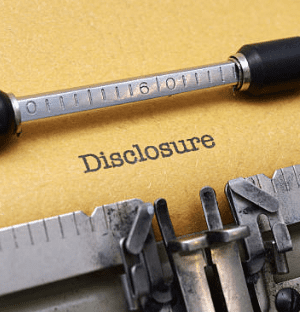Pennsylvania Charter Schools are Flush, But Will it Last?
According to the School Improvement Partnership Database, Pennsylvania’s free-standing charter schools with high-yield municipal bonds outstanding average over 126 Days Cash on Hand for FY 2020 – an increase of 12.5% from FY 2018. This level of liquidity is almost three times the level required by financial covenants which tend to be in the 45 Days Cash on Hand range, and means that on average, charter school borrowers can go four months without a per pupil payment from a cash flow perspective and still cover operating expenses. Three questions emerge for portfolio managers, institutional investors and high-yield municipal analysts: are we sure? Why did it happen? And will it last?
Are We Sure? The enhanced Days Cash on Hand levels were measured utilizing the School Improvement Partnership Database, which contains over 50 financial data points from audited financial statements for each charter school borrower in Pennsylvania – and in the country – for FY 2018, FY 2019 and FY 2020. The SIP Database does not rely on automated conversion of audited financial information from PDF documents, which often is not 100% accurate and does not standardize data for comparability. Rather, our data extraction process is led by accounting and municipal finance experts, is rooted in commonly used metrics applied by rating agencies, investors and lenders in the charter school industry, and applies consistent financial data standards to enhance comparability across accounting methods and reporting variations. Other metrics captured in this process include enrollment, percent of students that are economically disadvantaged and academic performance, among others. These data points are ingested, sorted and made available through the SIP Database using a scalable, flexible web-based architecture that allows users to access data through a user-friendly interface or as a data feed directly to the user’s enterprise workflow platform.
Why Did It Happen? There are many contributing factors to the 12.5% increase in Days on Cash Hand over the past three years for Pennsylvania stand-alone charter school borrowers. First, a number of Pennsylvania charter school borrowers obtained PPP loans from the Federal Government in the spring of 2020, which may have buoyed their cash levels. Second, per pupil payment levels by and large went up in Pennsylvania from FY 2018 to FY 2020 – by 22% in Philadelphia for Basic Education and 10.6% for Special Education. Third, on May 4, 2020, the Pennsylvania Department of Education submitted its Elementary and Secondary School Emergency Relief (ESSER) Fund application to the U.S. Department of Education (USDE) to obtain $523.8 million in emergency, one-time funds to help schools respond to COVID-19 impacts. On May 13, 2020, Governor Tom Wolf announced that the USDE approved Pennsylvania’s application to obtain $523.8 million in one-time federal emergency funds. Virtually every charter school borrower in Pennsylvania received one-time ESSER funds. Allocations (pa.gov) Fourth, with the end of on-site learning in March 2020, certain operating expenses may have decreased for FY 2020 compared to those budgeted, such as for facility heating and air conditioning, maintenance, and insurance.
And Will It Last? There are a number of factors influencing whether the Days Cash on Hand levels will last. Most importantly, the per pupil rates are set based on the expenditure of the authorizing school district for the prior fiscal year. In other words, the district expenditures for a COVID-shortened FY 2020 may trigger a decrease in per pupil payments in FY 2022. Potentially offsetting pressure on per pupil funding is the increase in enrollment in Pennsylvania charter schools in FY 2021 due to their quick pivot to distance. Many district schools struggled to distribute laptops to economically disadvantaged students, while some charters distributed laptops, wi-fi hotspots and made home visits. A third risk to liquidity levels of Pennsylvania charter school borrowers is legislative. Among other things, House Bill 272 proposes a change in special education funding by matching the payment level to the level of services needed by the students – no more one payment level for all. It also eliminates lease aid for charters school that lease their building. If H. B. 272 gets passed into law, cash balances across the Commonwealth’s charter schools will likely decrease. While Governor Tom Wolf supports the legislation, its fate is unclear at this time.
What is clear is that the SIP Database will allow investors to track the Days Cash on Hand levels of charter school borrowers in FY 2021 and beyond. To schedule a free demonstration of the SIP Database, click here.



